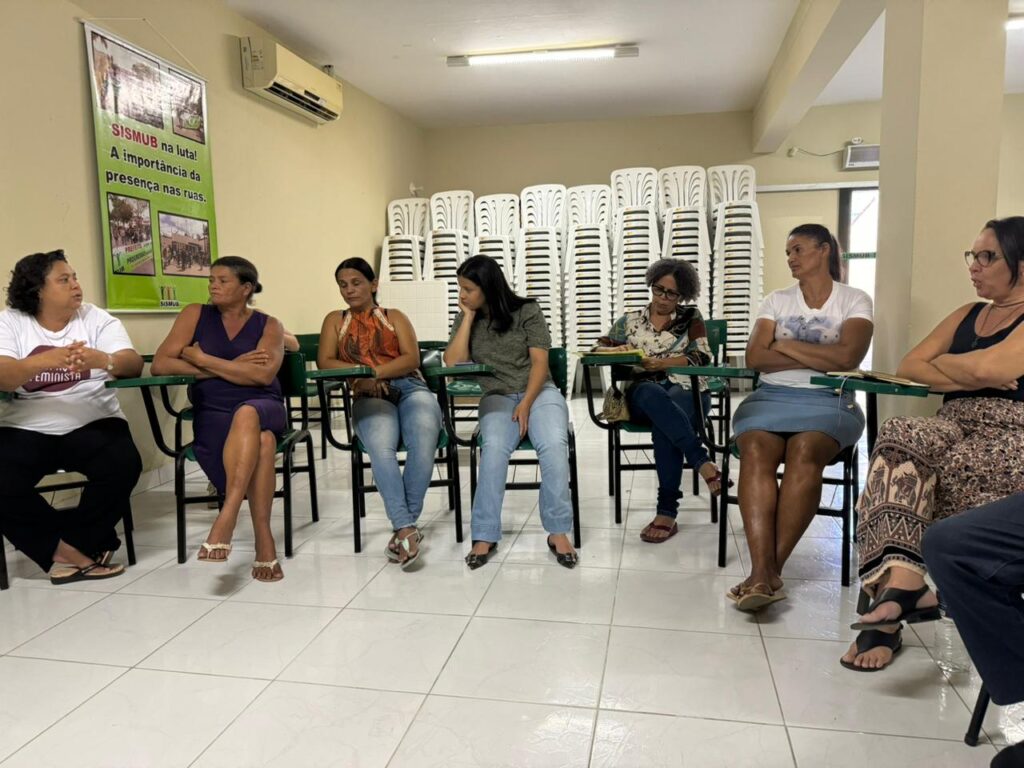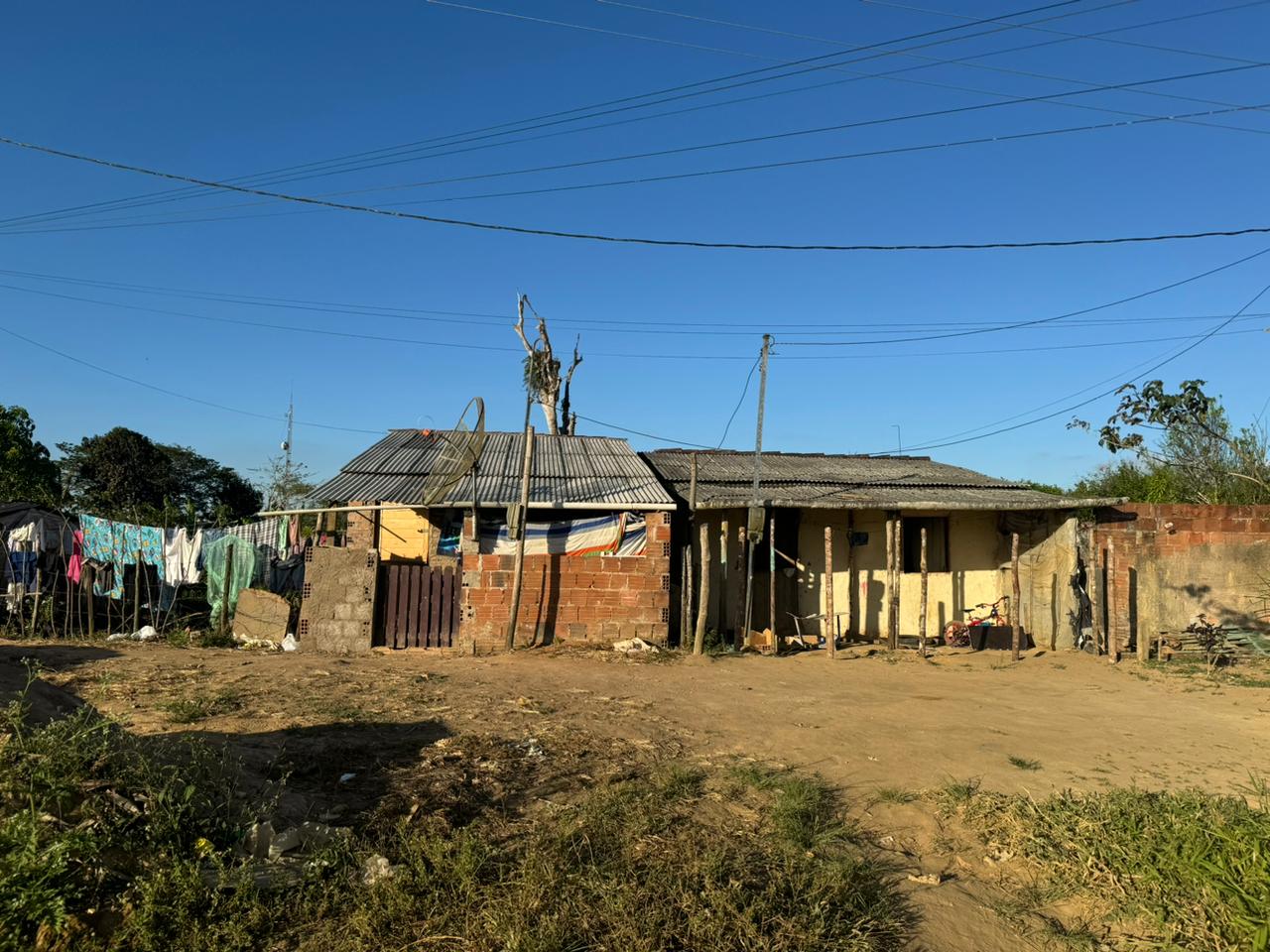The lack of sewage and drainage systems and the existence of some precarious mud-brick houses presents challenges for Colônia, a community located in the city of Bonito, in the state of Pernambuco (Brazil). The conditions of the 150 families living in the area have prompted the Terra Viva Institute of Brasil, at the invitation of the municipal government, to contribute to the implementation of a project that will enhance residents’ quality of life.
In partnership with Espaço Feminista, an organization dedicated to promoting women’s land rights, Terra Viva Institute is collaborating with Bonito’s city hall on a project focused on sanitation and housing improvements. This initiative, which began this year, took a significant step forward on November 2024, when representatives from both Terra Viva Institute and Espaço Feminista visited Colônia and Alto Alegre, another local community. Representing the Terra Viva Institute, directors Anna Paula da Silva and Patrícia Chaves and advisory board member Antônio Jucá Filho were present.

“We are going to support the important work undertaken by Espaço Feminista in Bonito, which is ongoing since 2019 through the municipal program ‘Minha Casa é Legal’, securing land regularization with a gender perspective, with the support of Cadasta Foundation,” explains Anna Paula Silva.
The program has already guaranteed land regularization in five communities in Bonito: Mutirão, Frei Damião, Alto Alegre, Bentivi, and Novo Mundo. “In Colônia, however, it was not possible to carry out the regularization process due to the infrastructure issues,” adds Patrícia Chaves, also a director at Espaço Feminista.
The recent visit aimed at gaining a deeper understanding of the challenges faced by locals, in addition to discussing initiatives focused on social development and gender equity. A detailed field survey with quantitative data collection will follow, allowing a precise assessment of needs to guide the next phases of the project.
During the visit, the teams met with municipal health secretary José Pinheiro and city councilor and former agriculture secretary Eiji Marimura, a descendant of Japanese immigrants who settled Colônia in the 1950s. Since then, the profile of local population has changed, with most residents today being of non-Japanese descent.
Marimura, along with Gigliola Silva and Sergiana Maria from Espaço Feminista’s team in Bonito, helped connect Terra Viva Institute with community members who opened their homes and shared their challenges.

“We observed the need for housing improvements and proper sanitation and were also informed about issues such as the high presence of Chagas disease-carrying beetles. I was moved by the conditions there. The problem is bigger than I had imagined, but prospects for improvement are good,” says Antônio Jucá Filho, an architect with over 30 years of experience in housing and sanitation and an advisor at the Institute.
In support of Bonito’s city hall, Terra Viva Institute will oversee the creation of a sanitation project, focusing on sustainable solutions tailored to the community’s needs. “Basic sanitation covers four areas: sewage treatment, waste collection and processing, urban drainage, and water supply. For Colônia, the initial focus will be on sewage collection and treatment. Given the community’s small size, septic systems will likely be used,” Antônio explains.
A specialized technician will develop the project in coordination with a technical team from the municipality, which will then handle the implementation with oversight from Terra Viva Institute.

In addition to Colônia, the teams also visited the community of Alto Alegre, where Espaço Feminista already works. “The land regularization done there was essential, but it has an individual perspective. Now, we aim to approach the area focusing on collective matters, such as green spaces, waste management, sewage, health, and transportation. This strategy involves both demands made to public authorities and the mobilization of women in the community,” notes Patrícia Chaves.
The visit included meetings with representatives from six areas that have undergone or are undergoing land regularization. These gatherings included listening sessions with local residents, who expressed their needs, and discussions on urbanization solutions that respect the environment.
“We’re excited to continue collaborating with the municipality and remain committed to improvements that significantly enhance the quality of life of the population, which actively participates in the process,” Patrícia concludes.
Photos: Evelyn Soares (Espaço Feminista), Patrícia Chaves and Antônio Jucá Filho (Terra Viva Institute of Brasil)
